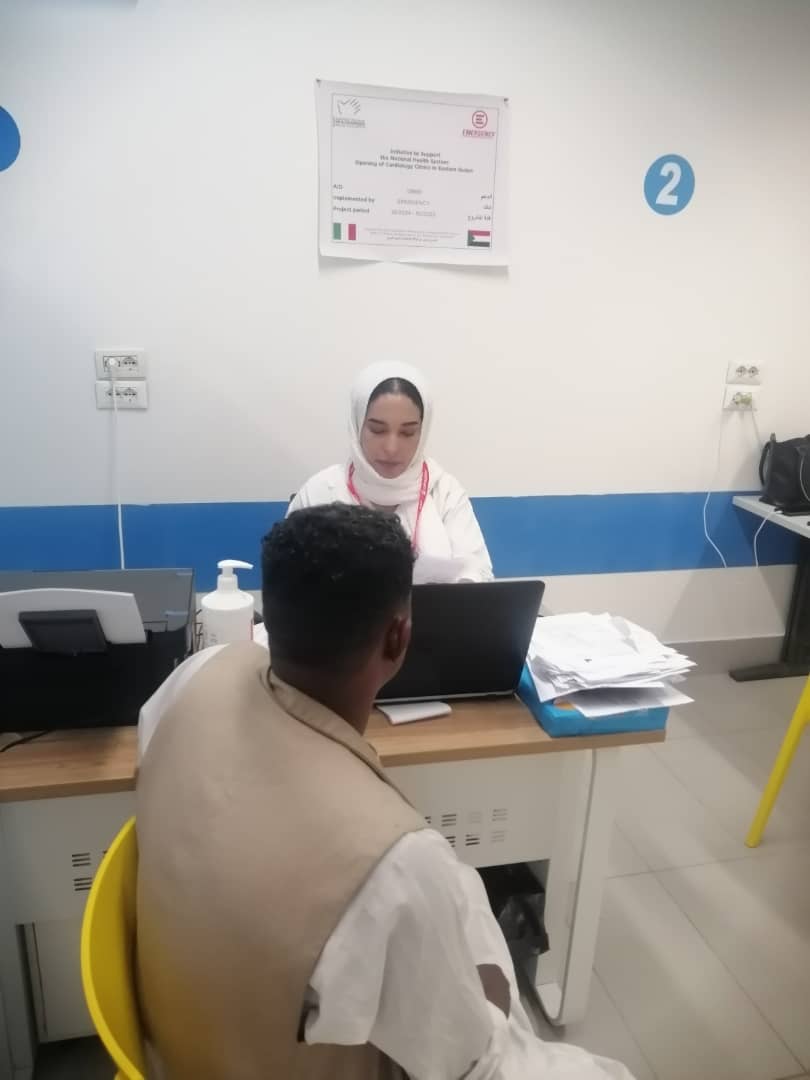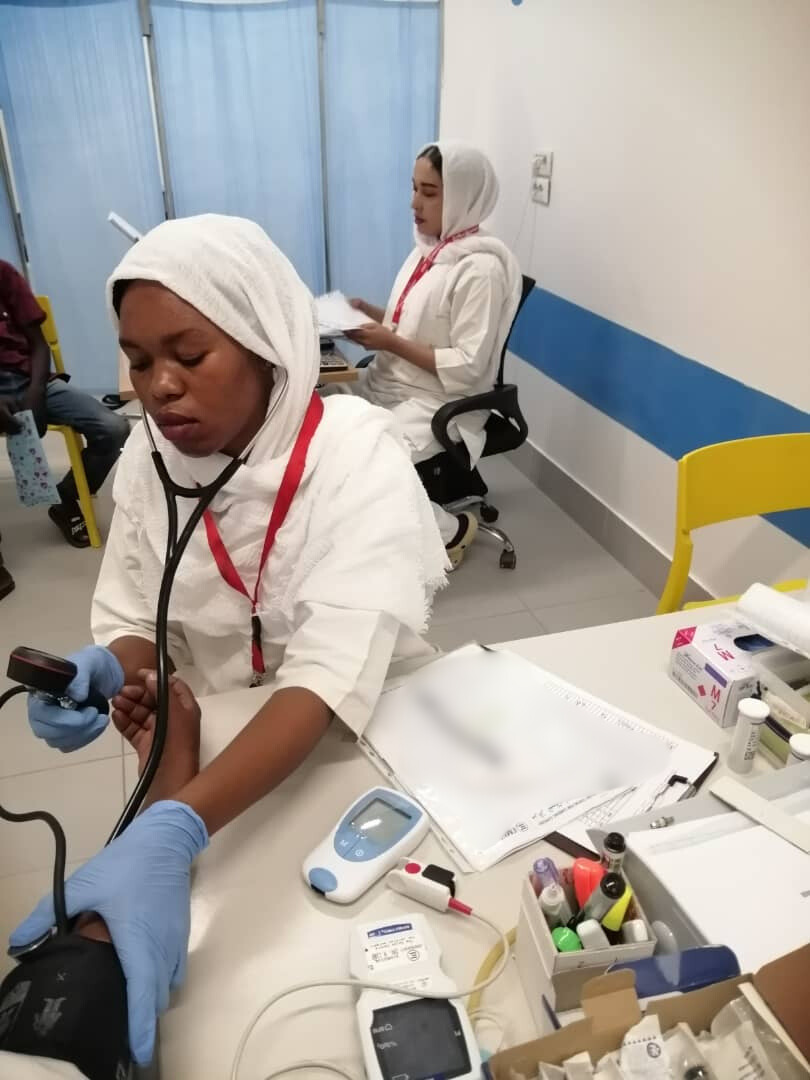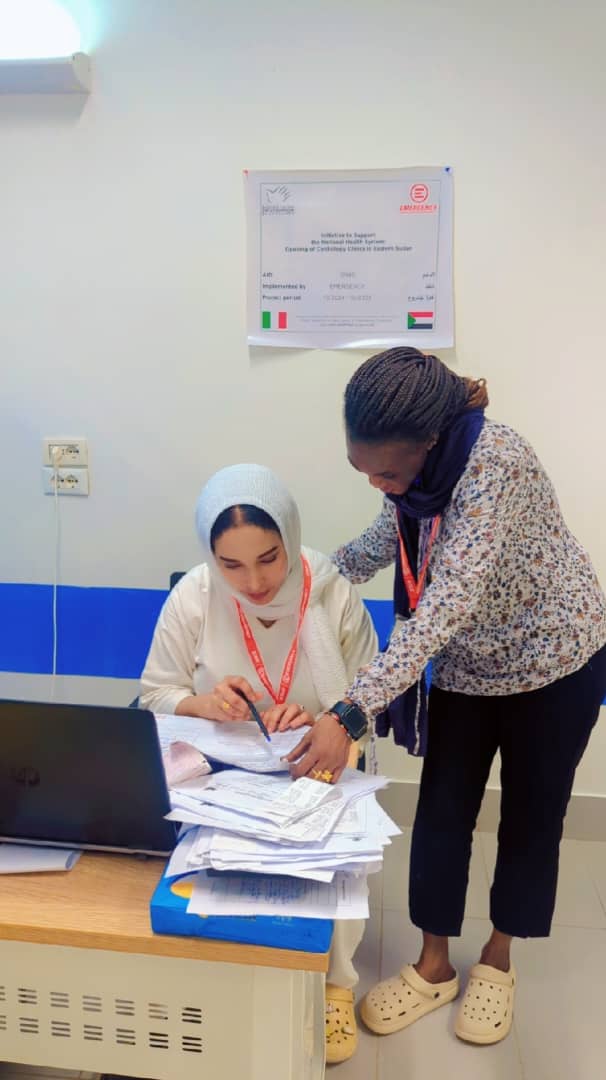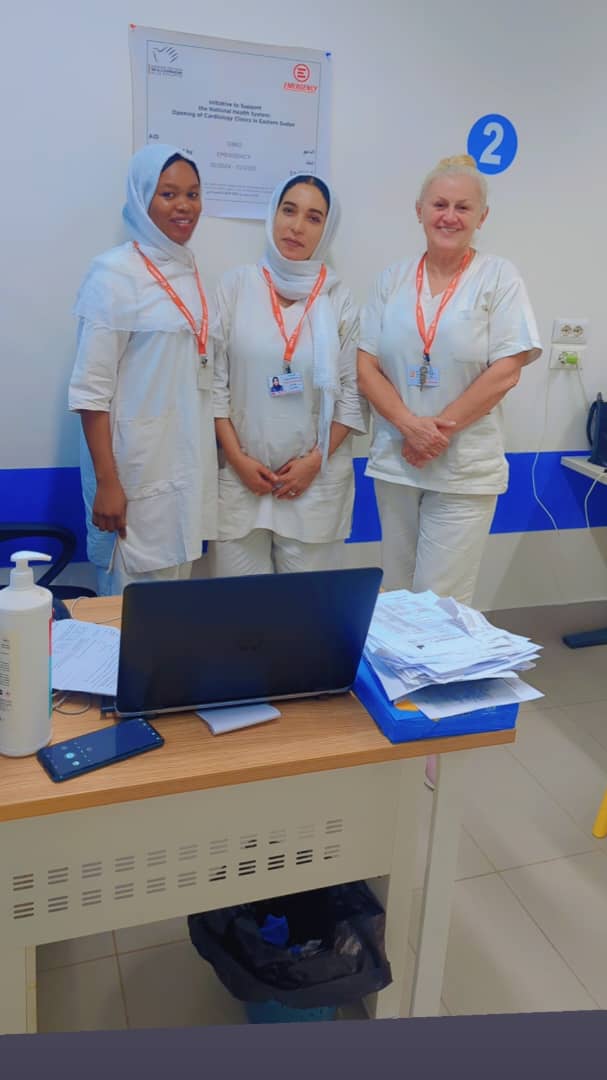Fighting has ceased in Khartoum, but violence continues in Darfur: updates from Sudan, after two…
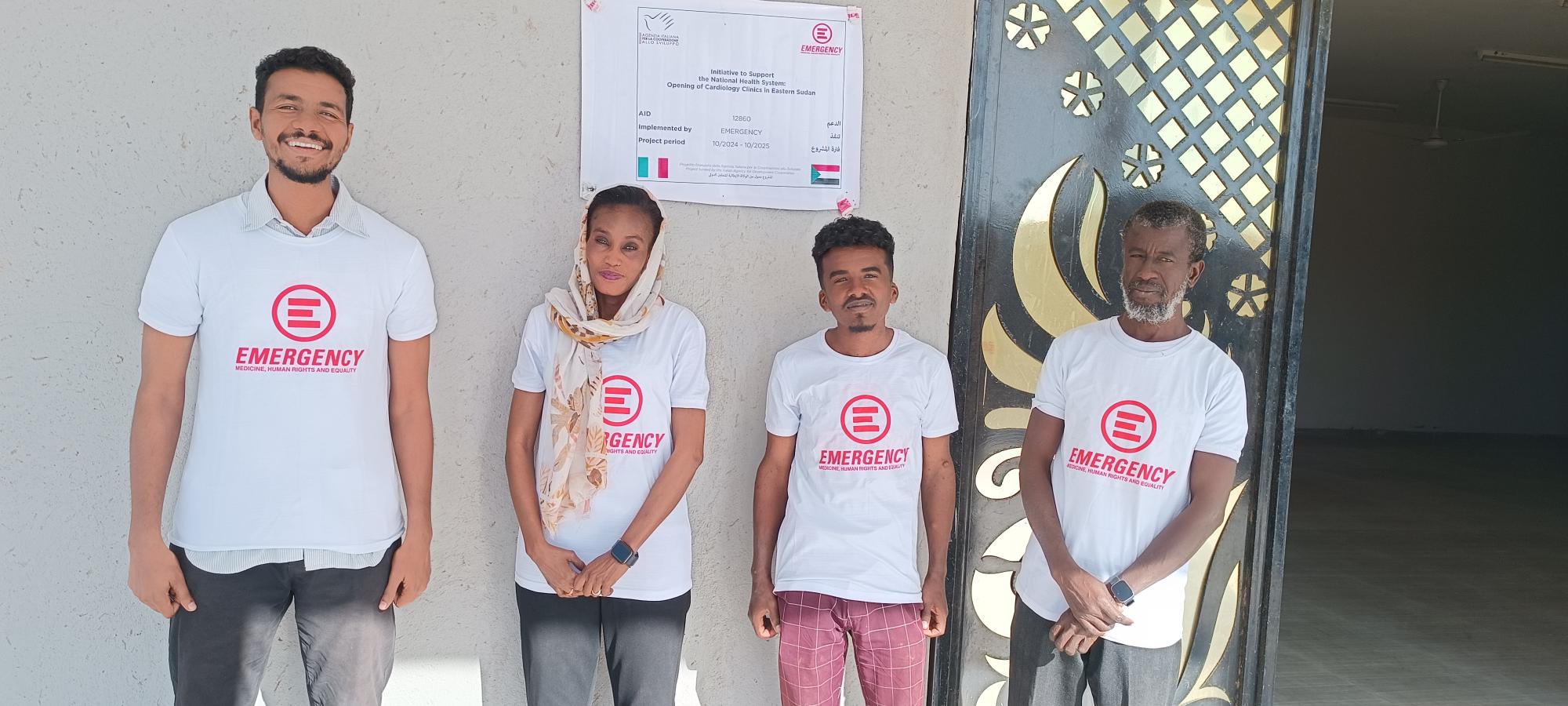
“It is as if Salam had come to our house”: EMERGENCY’s Satellite Cardiology Clinics in Sudan
With over 12 million internally displaced persons (IDPs), the war in Sudan has generated what the UN has called the world’s most devastating displacement crisis.
Before April 2023, Sudan was already hosting more than a million refugees from several African countries. When conflict broke between the Sudanese Armed Forces (SAF) and the Rapid Support Forces (RSF), millions more were forced to flee the fighting.
Among the many things left behind, they lost access to essential care, including cardiac services.
To continue providing health services to patients who have already had cardiac surgery at the Salam Centre, we have set up a network of cardiology outpatient clinics in some of the areas with the highest concentration of displaced people. There, we perform essential follow-ups and distribute the medications that post-operative patients need.
We chose the location of these clinics to get as close as possible to the new location of our patients, so we can ensure the continuity of care that EMERGENCY has always strived to maintain, the continuity that they absolutely need.
Luca Rolla, Director of EMERGENCY’s Regional Programmes for Cardiac Surgery and Paediatrics
EMERGENCY’s Satellite Clinics in Sudan
EMERGENCY’s satellite clinics are extensions of our Salam Centre for Cardiac Surgery, placed in areas that are easily accessible to the population. These small outpatient cardiology clinics have been set up to reach as many patients as possible, to provide the medications, follow-up care and specialist visits they need, even in the midst of war.
Thanks to these clinics, we have managed to re-establish contact with 60% of patients who were initially out of reach. Every day in the satellite clinics:
- We perform blood coagulation tests, an essential measure for patients who have had one or more heart valves replaced with mechanical prostheses.
- We prescribe and deliver free medications to begin, continue or adapt oral anticoagulant treatment, which post-operative patients must follow for life to avoid the risk of thrombosis or haemorrhage; based on the results of the examinations, we provide personalised assessments on dosages to ensure that the treatment is safe and effective.
- Periodically, a specialised EMERGENCY team visits the satellite clinics to conduct cardiology screenings and follow-ups, to identify those in the community who might need heart surgery or perform post-operative checks.
About 5,000 cardiac patients treated at the Salam Centre had to flee the capital because of the war, to seek shelter in safer places. But moving so far away from our Centre – hundreds or even thousands of kilometres – forced them to give up the treatment they were receiving free of charge here. Such as anticoagulant therapy, which cardiac surgery patients must follow for the rest of their lives.
“It is as if Salam had come to our house,” one patient told us, while waiting for his follow-up at the satellite clinic in Gedaref. In just a few words, he was able to describe the purpose of this project, which was born out of the needs of the people we treat every day.
Gehan Hashim, Coordinator of EMERGENCY’s Satellite Clinics in Sudan
The activities of EMERGENCY’s cardiology outpatient clinics in Kassala, Gedaref and Port Sudan are funded by the Italian Agency for Development Cooperation.


